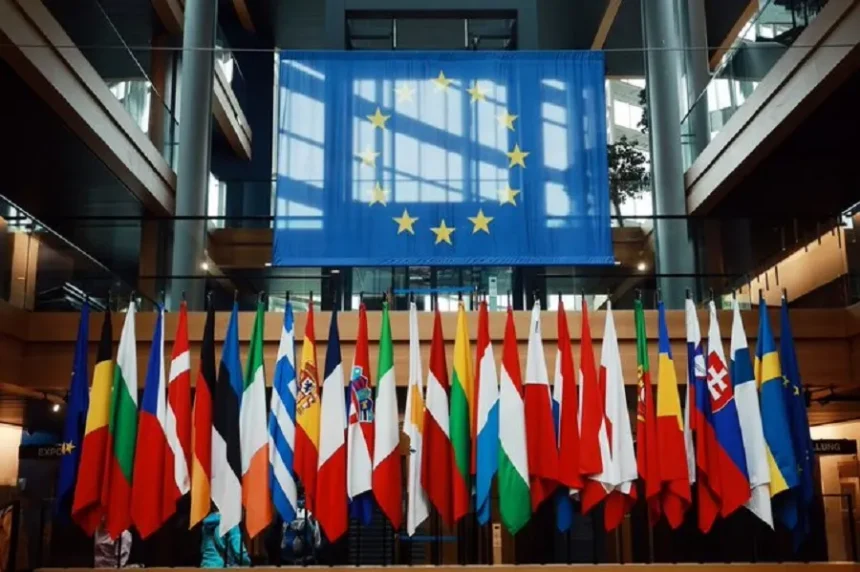The European Parliament (EP) today approved a report on the “Institutional Consequences of EU Enlargement Negotiations,” which, among other recommendations, suggests removing or bypassing the veto power of member states in certain cases during accession talks with candidate countries.
The European Council, the EU’s top political body composed of member state leaders, generally decides unanimously, except in specific cases such as the appointment of senior officials. The Council of the EU, made up of member state ministers and responsible for co-legislation with the EP, uses qualified majority voting in many areas, except for “sensitive” issues like foreign and security policy, enlargement, and sanctions, where decisions still require consensus.
European Commission President Ursula von der Leyen has repeatedly warned that, given geopolitical changes and the need for rapid responses to global challenges, the EU must consider reducing the number of issues requiring unanimous approval to improve efficiency.
During a debate with MEPs in Strasbourg, Commissioner for Enlargement Marta Kos recalled von der Leyen’s statement that qualified majority voting should be applied in areas such as foreign policy, noting it is “time to free ourselves from the chains of unanimity.” Kos stressed that unanimity no longer makes sense if the EU wants to act quickly, effectively, and strategically, particularly in today’s geopolitical climate.
The Commission will focus on what can be achieved within the current Treaty framework and in areas where broad consensus exists. The report, prepared by French Liberal MEP Sandro Gozi, received support in the European Parliament with 310 votes in favor, 277 against, and 53 abstentions.
The plenary debate focused on proposals to replace unanimity with qualified majority voting or bypass the veto on the EU’s most sensitive decisions.
A qualified majority in the Council requires 55% of member states (15 of 27) voting in favor, representing at least 65% of the EU population. In some cases, an enhanced majority of 72% (20 members) is required. Sensitive areas, such as common foreign and security policy and accession negotiations, still demand unanimity.
The report emphasizes that the EU’s institutional framework must adapt to respond effectively to political and institutional challenges, with future enlargements serving as a catalyst for change. Limiting the scope of unanimous decisions remains controversial, particularly among smaller member states, which fear losing influence in EU decision-making.
The issue of unanimity was highlighted after Hungary blocked the opening of accession negotiations with Ukraine, a country of strategic importance for the EU politically and security-wise. President of the European Council, Antonio Costa, earlier explored the idea at an informal summit in Copenhagen to allow qualified majority voting to open negotiation chapters, while retaining unanimity for their closure. However, this was not unanimously supported, and removing unanimity would still require a unanimous decision among all member states.
There was also discussion that new EU members might not have veto rights until institutional reforms are implemented. This idea remains informal and has not been officially proposed.







